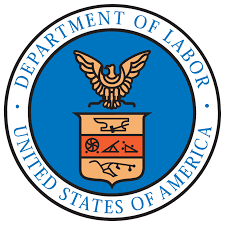Effective September 16, 2020, in response to a decision by a court in the Southern District of New York, the federal Department of Labor has updated the definition of a Health Care Provider and an Emergency Responder as outlined below.
Who is a “health care provider” who may be excluded by their employer from paid sick leave and/or expanded family and medical leave? [Updated to reflect the revised regulations.]
For the purposes of defining the set of employees who may be excluded from taking paid sick leave or expanded family and medical leave by their employer under the FFCRA, a health care provider includes two groups.
This first group is anyone who is a licensed doctor of medicine, nurse practitioner, or other health care provider permitted to issue a certification for purposes of the FMLA.
The second group is any other person who is employed to provide diagnostic services, preventive services, treatment services, or other services that are integrated with and necessary to the provision of patient care and, if not provided, would adversely impact patient care. This group includes employees who provide direct diagnostic, preventive, treatment, or other patient care services, such as nurses, nurse assistants, and medical technicians. It also includes employees who directly assist or are supervised by a direct provider of diagnostic, preventive, treatment, or other patient care services. Finally, employees who do not provide direct heath care services to a patient but are otherwise integrated into and necessary to the provision those services—for example, a laboratory technician who processes medical test results to aid in the diagnosis and treatment of a health condition—are health care providers.
A person is not a health care provider merely because his or her employer provides health care services or because he or she provides a service that affects the provision of health care services. For example, IT professionals, building maintenance staff, human resources personnel, cooks, food services workers, records managers, consultants, and billers are not health care providers, even if they work at a hospital of a similar health care facility.
To minimize the spread of the virus associated with COVID-19, the Department encourages employers to be judicious when using this definition to exempt health care providers from the provisions of the FFCRA. For example, an employer may decide to exempt these employees from leave for caring for a family member, but choose to provide them paid sick leave in the case of their own COVID-19 illness.
Who is an emergency responder? [Updated to reflect the revised regulations.]
For the purposes of Employees who may be excluded from Paid Sick Leave or Expanded Family and Medical Leave by their Employer under the FFCRA, an emergency responder is anyone necessary for the provision of transport, care, healthcare, comfort and nutrition of such patients, or others needed for the response to COVID-19. This includes but is not limited to military or national guard, law enforcement officers, correctional institution personnel, fire fighters, emergency medical services personnel, physicians, nurses, public health personnel, emergency medical technicians, paramedics, emergency management personnel, 911 operators, child welfare workers and service providers, public works personnel, and persons with skills or training in operating specialized equipment or other skills needed to provide aid in a declared emergency, as well as individuals who work for such facilities employing these individuals and whose work is necessary to maintain the operation of the facility. This also includes any individual whom the highest official of a State or territory, including the District of Columbia, determines is an emergency responder necessary for that State’s or territory’s or the District of Columbia’s response to COVID-19.
To minimize the spread of the virus associated with COVID-19, the Department encourages employers to be judicious when using this definition to exempt emergency responders from the provisions of the FFCRA. For example, an employer may decide to exempt these employees from leave for caring for a family member, but choose to provide them paid sick leave in the case of their own COVID-19 illness.

